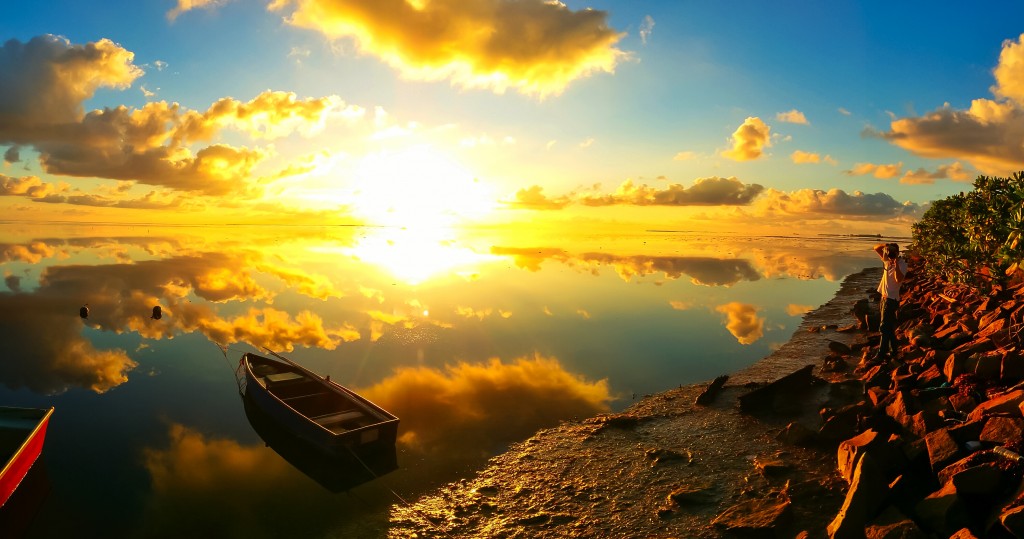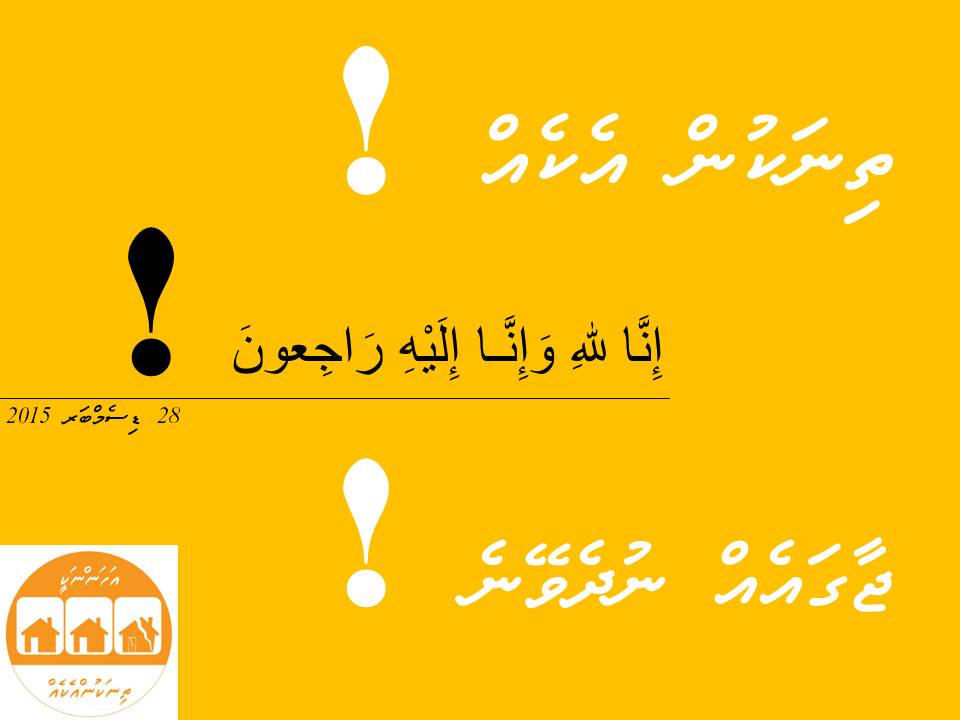Reflections on the Maldivian democracy

by Daniel Bosley
Maldivian democracy. Democracy in the middle of the Indian Ocean. It’s unique. 360,000 people. 90,000 sq km. 187 inhabited islands. Coconuts. Coral reefs. Transmitting the desires and needs of the people to their elected officials in this environment? It’s difficult.
The features of the Maldives’ recent democratic endeavours have also been unusual in many ways. Unusual in that they have been televised and written about across the world. Unusual in that massive increases in global tourism and the age of digital media have raised the profile. For most who have read about the problems facing ‘that place that their friend went to on holiday that one time’, it is all very new.
For half of the Maldives too, the explosion of politics in the past decade must seem unprecedented after three decades of calm dictatorship (supplemented by the occasional enhanced interrogation). Those under the age of 40 will be too young to remember any similar upheavals.
Looking at the documented history of the country, it is clear many of the modern characteristics of its politics are new. Most noticeably, political violence is now endemic, compared to just a few short years ago when any act of violence would set tongues wagging in many mouths in many islands (there are reports that any angry outbursts in the past would prompt police intervention).
The answer to why these traits have occurred is probably the same as that which solves 9 out of every 10 such puzzles. Money. These days, there’s a lot more of it in the archipelago. Tourist arrival statistics now have 7 figures and resorts have 7 stars.
The stakes are higher, but is the game all that different? Are the basic problems facing Maldivian democracy new?
Foreign media accounts of the recent political turmoil are usually fairly superficial, with few even willing to look back as far as the failure to secure judicial independence post-2008 as the key to the current chapter of ‘_____ in Paradise’. Insert the words ‘judicial independence’ in there and then try and sell it; the likelihood of a successful pitch is about the same as any foreign outlet having the time or resources to look any further into the national context.
But contrary to the necessary reductivism of international coverage, many of the current traits have been seen before. The fact that the average Sultan’s reign lasted just 8 and a half years suggests that messy power transfers are not a modern phenomena. Those observing through aftermath of the country’s first written constitutions in the 1930s noted that new institutions were quickly dominated by a tiny and nepotistic elite, while a number of leaders were soon hounded out of politics (and the country) – accused of moving forward too fast for the general population.
For the lazy analyst, the above details could be copied and pasted into a text discussing recent travails, with cries of nepotism and oligarchy following the spectacular ending of President Mohamed Nasheed’s presidency, which had been deemed too liberal by another decidedly undemocratic rent-a-mob.
Additionally, the political polarisation that has split the country down the middle in the age of multi-party politics has been seen before. ‘Unique’ anecdotal cases such as the physical division of islands along party lines in recent times, can be found frequently in more historical accounts. Feuding between wards, families, and towns are frequently cited as having inspired ‘fanditha’ attacks, arson, and even a dividing trench dug across one island. Attempts in the 60s to have elected atoll chiefs were short-lived due to the local factionalism the process exacerbated.
Despite the seemingly idyllic surrounds, people in the islands have the same need as all people to create an identity by finding an ‘other’ to push against. In a country with little or no cultural, ethnic, or religious heterogeneity (and, thankfully, with little propensity for violence), it is hardly surprising that people will (ab)use politics to satisfy these human egotistical urges.
But at heart, many (particularly older) Maldivians seem to know that they are watching a reboot rather than a sequel to the political drama, and while international headlines wail about new crises, most locals roll their eyes in apathy, or let out an exasperated chuckle. Despite taking part in the soap opera – to alleviate boredom as much as anything – they know that current cast members are interchangeable. They know that most of the root causes will not suddenly disappear by simply sacking the lead actor (although using a different talent agency occasionally might be a good thing).
That a progressive young leader is transformed into a curmudgeonly despot is not a new story anywhere, and the recent transformation of VP Adheeb from a reportedly mild-mannered young man to the country’s favourite scapegoat begs more questions about the system than the individuals in it (Dr Jameel’s recent transformation may yet be attributed to amnesia…or maybe an evil twin).
Questions and answers
As the Maldives’ political landscape looks set to continue its monotonous cycle of purge and coup, it will require new thinking to redirect the political currents that traditionally move jobs, privilege, and land from one side of the island to another with each new set of leaders. It is these predictable beyfulhun monsoons that create grasping kleptocrats and dictators.
Both leaders and voters should be encouraged to think beyond short-term (corruption, political prisoners) and medium-term problems (judicial independence) to long-term (democratic consolidation, rule of law, stability) issues in order to break the country out of a pattern that is becoming too harmful to continue.
Engaging democratic citizens will not make great headlines (‘Engaging voters in Paradise’, anyone?). It is a slow process that must start with providing people adequate representation, and an ability for introspective thinking about themselves, their community and their leaders; national pride without nationalist xenophobia, loyalty without patriarchy, public service without quid pro quo.
Any journalist working in the Maldives should also aspire to assist this process, building trust and making information accessible for the analysis of the individual reader – not telling them what to think by funneling facts and manipulating the narrative.
It is at the level of political engagement that Maldivian democracy faces particular systemic problems. Many people simply don’t take political science seriously for the same reason anti-intellectualism exists in working class communities around the world; they have not been convinced of the long term effect politics has on their lives. The rapid transition from small communities of fishermen to citizens of a modern democratic nation is particularly tough for these reasons.
In order to draw people into politics and create a thriving democracy, more politicians must try to get into the heads of the people they represent (without moving the furniture about while they’re in there). Short term populism (and bribes) may win a vote, but only a long term vision of people’s wants, hopes, and needs as Maldivians will bring long term stability that leaders crave and the country needs. Indeed, with the changes the society has undergone in recent decades, such an appraisal of the nation is desperately needed.
Until people are truly engaged, blatantly illegal activity by those in office and brazen kleptocracy will not result in the groundswell of outrage many expect. Apathy is the enemy of accountability. Additionally, constantly lobbying foreigners to force through changes from the outside is a poor substitute for home-grown remedies.
A disengaged electorate is made worse by the continuing dominance of a few patriarchs, who in turn have always danced to the beat of bodu beru from Male’. Disillusionment with distant leaders is not unique to the Maldives, but the physical disconnect between Malé and the atolls has always been extreme.
The current gap between politicians and those they claim to represent, however, will not foster the type of engagement upon which a democratic culture can flourish. Presidents in the elite bubble continue to buy votes and rent crowds while convincing themselves that they are very popular (a questionable method of polling); literally dragging their supporters along rather than asking them to follow. Meanwhile, MPs occupy spaces in the Majlis, nominally with the intention of representing an island constituency, and yet few spend any time with their voters beyond the time it takes to count the ballots.
An outsider can never truly know a community as its permanent members can, and a distant member of the elite will struggle to understand the wants and needs of their electorate. The fact that every atoll in the country has its own ‘representatives’ suggests they should be represented in the embodying-their-values-and-needs-in-the-Majlis sense of the word, rather than the enjoy-your-football-field-see-you-in-5-years meaning. This unnecessary aloofness misses a vital opportunity for local leaders to articulate and to translate Maldivian democracy to their voters; to find that sweet spot between dry theorising (sorry about that) and a man on a podium calling his opponents heretics.
Lists compiled by social scientists have included over 500 different types of democracy, but every single one them has to meaningfully involve the people in decision making (rather than as a fig leaf for oligarchy). The Maldives’ current leaders are quick to point out the unique nature of the country, and to try and mould such a place to perfectly fit western models would represent the worst type of orientalism (in Edward Said’s sense of the word).
Indeed, Maldivian democracy could well end up with it’s own unique position in academia, but without the engagement of the electorate it will remain an oxymoron. Rather than patronising patrons telling people what they want (or more often what they should be afraid of), Maldivians should be asked what they want from their democracy and given the informational tools to answer by their leaders and their media.
The new character of Maldivian politics is only adding greater urgency to older and deeper problems surrounding its democracy growth. Without asking the right questions, however, it will be hard to develop long-term answers.
About the author: Daniel Bosley is a British journalist working in the Maldives’
Photo: Daniel Bosley

